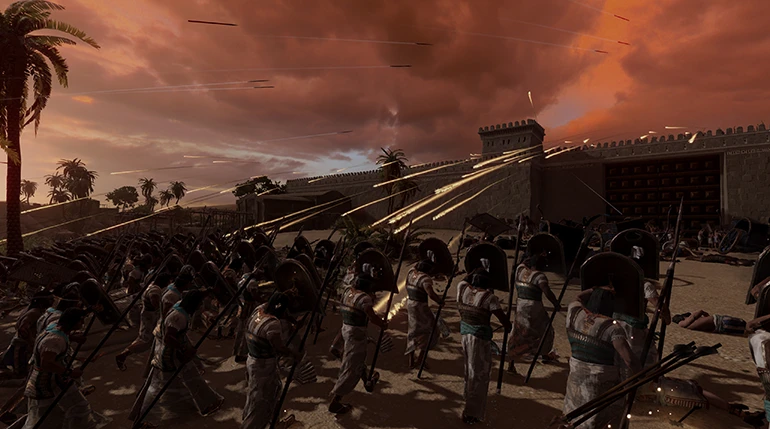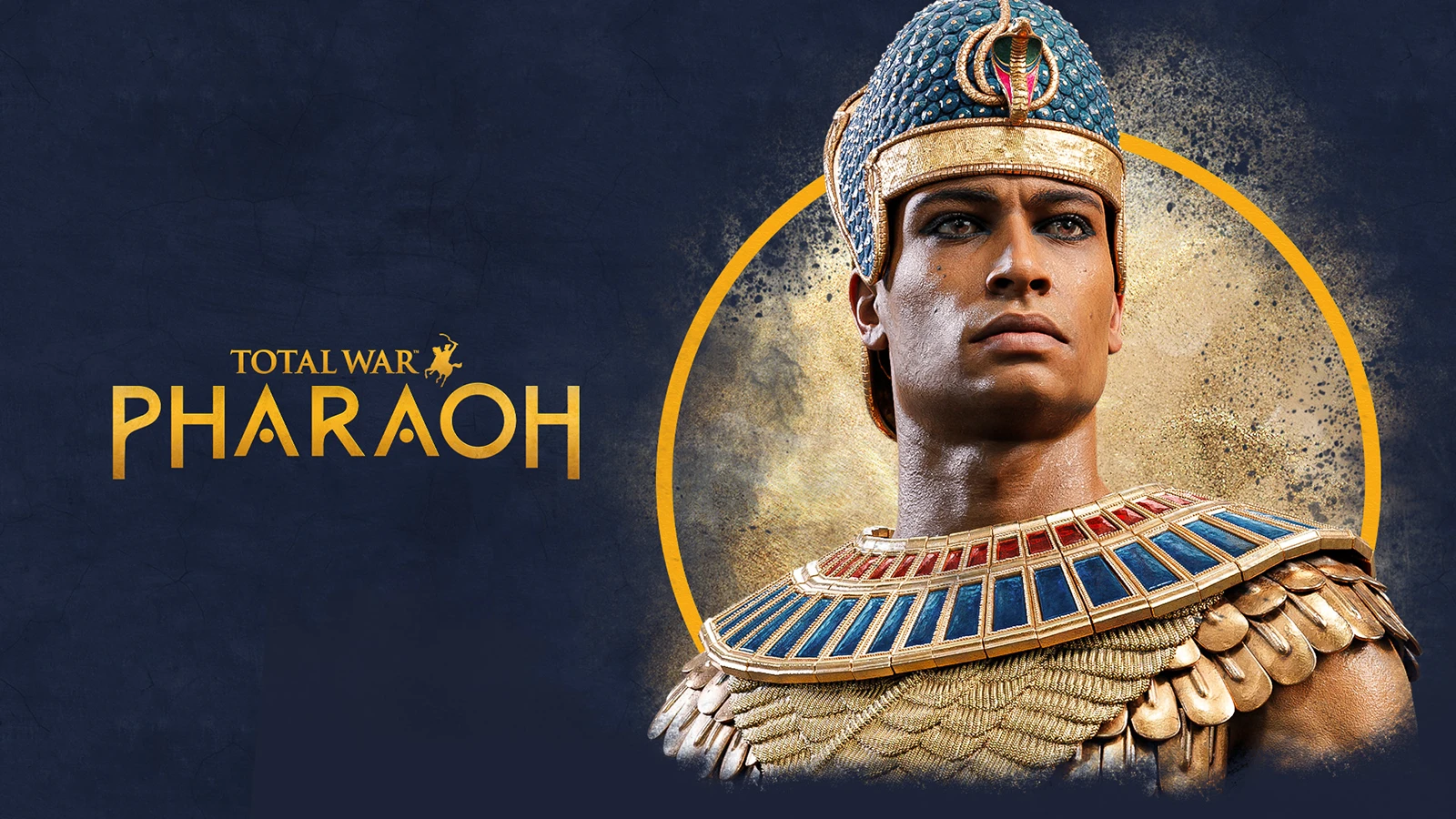Over the years, the Total War franchise has expanded to include fantasy settings like the Warhammer trilogy and the theatrical Three Kingdoms. This move has undoubtedly attracted new audiences and brought a fresh perspective to the series. However, amidst all this innovation, long-time fans of the franchise have been left craving a return to Creative Assembly's historical roots.
While the remastered Total War: Rome did provide a taste of the past, it's fair to say that many enthusiasts are eager for the developer to delve back into the historical, real-world settings that initially captivated them. The franchise's ability to cover such diverse ground is impressive, but there is a sentiment among fans that the historical aspect is what truly sets the Total War games apart.
Although it lacks the supernatural elements seen in other Total War games, Total War Pharaoh offers a more realistic and grounded experience. However, this focus on accuracy and authenticity comes at the expense of a slower overall pace. While the game's Bronze Age campaign and combat may be historically accurate, they can feel somewhat outdated compared to the grandeur and spectacle of other Total War titles. Despite its efforts to bridge the gap between accuracy and accessibility, Total War: Pharaoh ultimately falls short in delivering the larger-than-life experience that its counterparts provide.
For those of us who only have a hazy memory of our high-school world history course, the Bronze Age is a significant period that introduced groundbreaking inventions such as the wheel, written language, and metalworking. Although numerous civilizations thrived during this era, Creative Assembly, in their game Total War: Pharaoh, has chosen to concentrate on the Hittites, Canaanites, and Egyptians as they existed during the tumultuous period known as the Bronze Age, which collapsed around 1200 BC. This decision allows players to immerse themselves in these societies' rich and complex history, experiencing first-hand the challenges and triumphs of this pivotal time in human civilization.
Total War: Pharaoh is a game that resembles Troy: A Total War Saga in terms of its presentation and gameplay. However, it also incorporates some aspects from other titles in the Total War series, such as Total War: Attila and Three Kingdoms. One of the notable features of Pharaoh is its less scripted campaign, which sets it apart from some of the more recent entries in the franchise.

Strategies of the Bronze Age in Total War Pharaoh
As players progress through the game, they will be immersed in a turn-based campaign map where they must focus on expanding their economy and empire. However, the peaceful days are short-lived, as a civil war erupts, forcing players to contend with numerous pretenders who are all vying for the throne of their faction. This strategic challenge adds an exciting and intense element to the gameplay, making Total War Pharaoh a genuinely engaging experience for fans of the grand strategy and 4X genres.
In the late game of Total War, the primary objective shifts towards defending against the mysterious “sea people” invasion and securing your civilization's survival during the tumultuous Bronze Age collapse. The campaign allows a freeform approach, a Total War series characteristic feature. However, I found myself at a loss without clear direction by around turn 50. Although the broad victory conditions offer an alternative to the typical goal of conquering the entire map, they lack the excitement and satisfaction of the early game rush.
Total War: Pharaoh, touted as the “definitive bronze-age experience,” offers a more extensive map than titles like Three Kingdoms or Troy at the strategic level. However, this expansive map is still somewhat restrictive because it excludes many key-era players. While the cultures featured in Pharaoh are undoubtedly important, civilizations like the Assyrians, Mycenaeans, and Babylonians are entirely ignored. This limits the players' strategic options and presents an inaccurate portrayal of the period. It is unclear whether Creative Assembly overlooked these civilizations or purposely excluded them from being included as post-release DLC, which would be disappointing.
Pharaoh, a game in the Total War franchise, showcases the importance of diplomacy and backroom politics. One of the significant changes in this game is the introduction of the court system, which enables players to vie for positions of power and undermine their rivals to gain legitimacy and popularity as they strive to become the Pharaoh. By carefully strategizing and making the right moves, players can even call in favors at opportune moments, whether to increase their wealth or bolster their military forces. This adds an exciting layer to the gameplay, highlighting the intricate and often treacherous nature of political maneuvering in ancient Egypt.
In the game, the pantheons of the three playable cultures significantly impact shaping your empire and providing bonuses to your faction based on the level of reverence you show them. However, unlike the religious advantages in Troy, these benefits are primarily passive. For example, even if you construct numerous temples, your army of Ra worshippers won't be able to summon powerful beams of light to turn the tide of battle. This grounded approach and presentation align with Pharaoh's style, but it would have been more enticing to have additional reasons to engage with this system actively.
Diverse Armies and Tactical Depth
Pharaoh is a game that embodies warfare's harshness and savagery during the Bronze Age. Despite the primitive nature of this era, Pharaoh provided players with an extensive selection of units to construct their army, ranging from slingers and archers to axemen and charioteers. What sets this game apart is the inclusion of unique faction units and buildings for each faction, making the gameplay even more diverse and engaging. As players progress through the campaign, they can strengthen their forces by incorporating native units from specific regions. This level of tactical depth and variety makes Pharaoh a standout real-time strategy game in capturing the brutality of warfare in the ancient world.
Having unique unit pools from each map region can sometimes make the overall roster feel a little bloated. However, these additions serve an essential purpose: allowing players to even out their army compositions when fighting outside their home turf. Take, for instance, the scenario where you have an agile and lightly armored Egyptian army. This army may excel in warfare in the open desert but could struggle when facing the more heavily armored Hittites.
In such situations, it becomes crucial to supplement your army with native units from the northern realms. These regional additions not only add depth to the gameplay but also enhance the strategic aspect of the game, forcing players to carefully consider their army composition and adapt to various terrains and opponents.
In the Total War franchise, the impact of weather and terrain on battles has always been significant. However, in Pharaoh, the dynamic weather system takes it to a new level, completely changing how players approach conflicts. The scorching heat, for instance, adds a layer of realism and poses a strategic challenge as it quickly tires out units. On the other hand, torrential downpours can impede ranged attacks, making it difficult to hit targets accurately and bog down chariots, rendering them less effective. These weather conditions force players to adapt their tactics accordingly, considering the strengths and weaknesses of their units in different weather scenarios.


A Visual Journey Through Ancient Egypt
Aesthetically, Total War Pharaoh truly shines as an exceptional technical masterpiece in its tactical and strategic aspects. The game's visual representation of the vast desert landscape is nothing short of mesmerizing. The golden dunes, stretching as far as the eye can see, shimmer brilliantly under the scorching midday sun, creating a stunningly immersive experience.
Moreover, the battles that unfold within this majestic setting are nothing short of breathtaking. The scale and spectacle of the clashes between armies are genuinely epic, evoking a sense of grandeur and intensity. Amidst the chaos of clashing units, the generals taunt each other, adding an extra layer of excitement and intrigue to the already thrilling battles. Total War Pharaoh's aesthetic prowess truly elevates the game, providing players with a captivating and visually stunning experience.
Despite the release of new titles, it is disheartening to see that specific issues from previous games persist, particularly regarding unit collision and AI pathfinding. The problem of units clumping together in a messy blob remains a significant drawback, rendering them ineffective in battles, especially in settlement fights where narrow streets and chokepoints need to be traversed. Additionally, the AI often struggles to make decisions when faced with attacks from multiple directions, resulting in questionable tactical choices. At times, it feels as if my strategy is far superior to the AI's, but I can't help but wonder if these flaws are intentional design choices rather than unintentional bugs.
Verdict
Total War: Pharaoh aims to offer players an approachable gaming experience that encapsulates the essence of a condensed world history course. While many of the game's mechanics promise, they fail to provide a truly immersive and memorable grand strategy experience. Creative Assembly's depiction of the Bronze Age lacks the thematic depth to captivate newcomers and the accuracy and breadth to engage seasoned Total War players. As a result, Total War Pharaoh is unlikely to leave a lasting impact and may fade into obscurity over time.
Editor's Note: The review for this game is still in progress, as the editors have not had the opportunity to explore and evaluate the online cooperative and head-to-head modes thoroughly. Once they have had a chance to experience these features firsthand, the review will be updated accordingly. It is essential to provide a comprehensive analysis of all aspects of the game, including its multiplayer capabilities, to give the readers a complete understanding of its strengths and weaknesses. Please stay tuned for the updated review, including a deep dive into the game's online cooperative and head-to-head modes.






